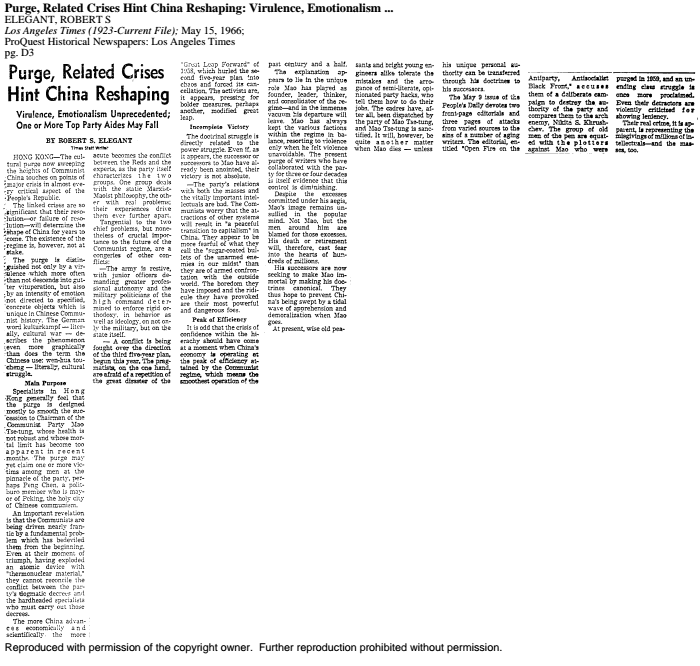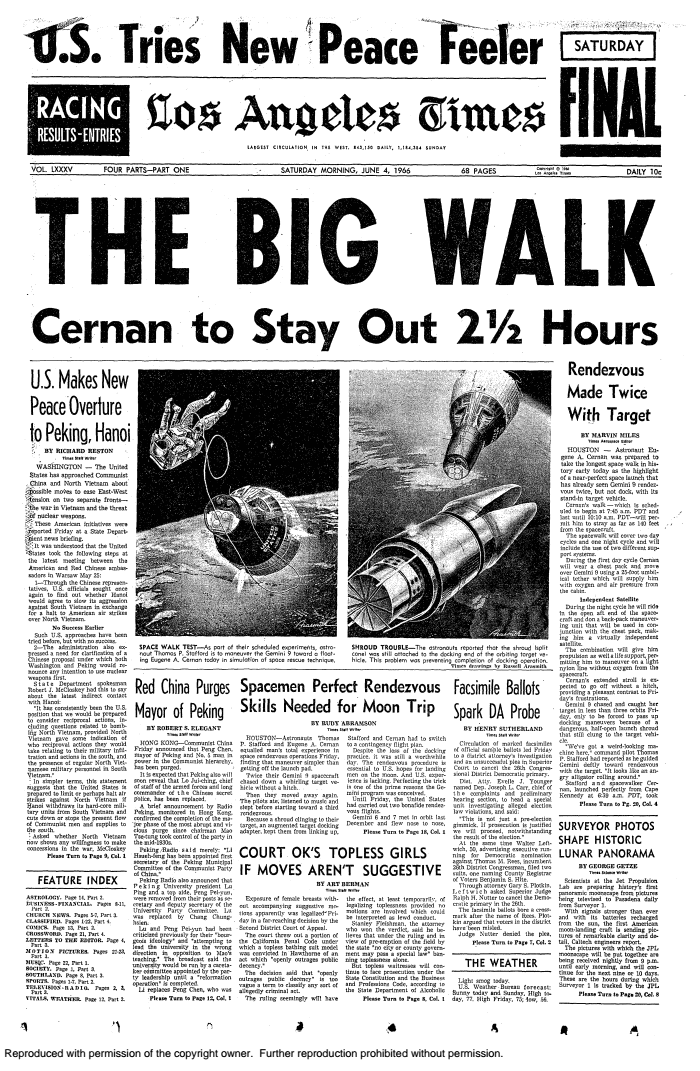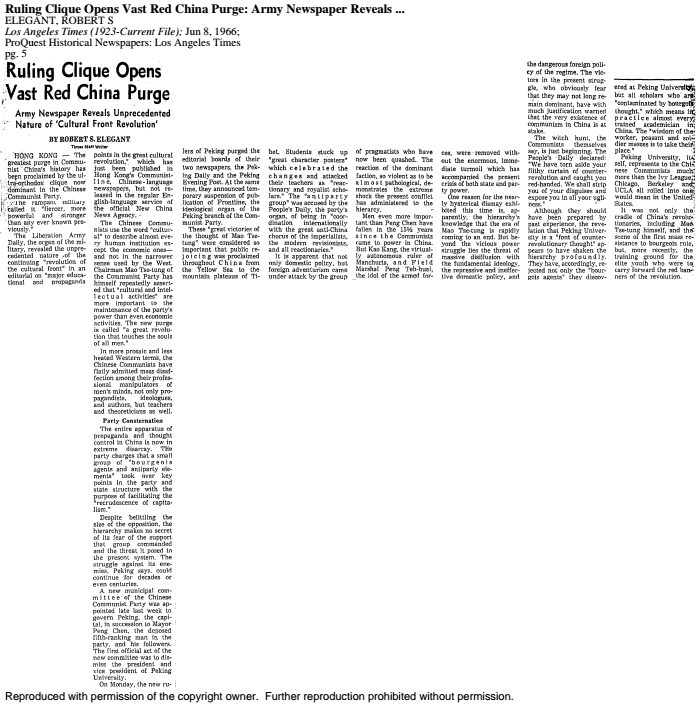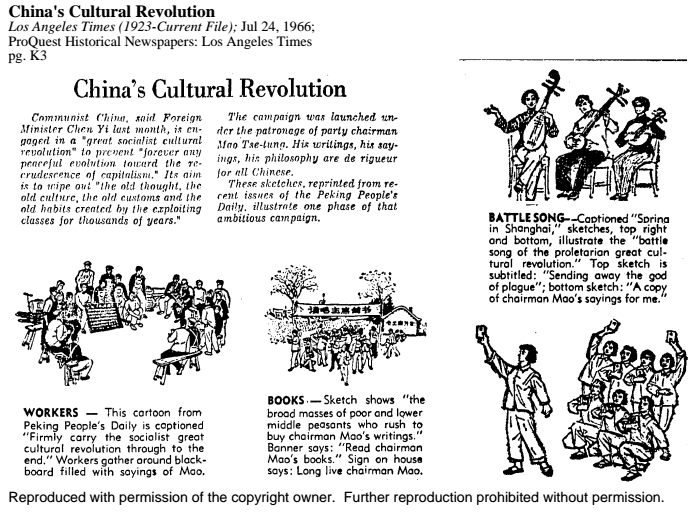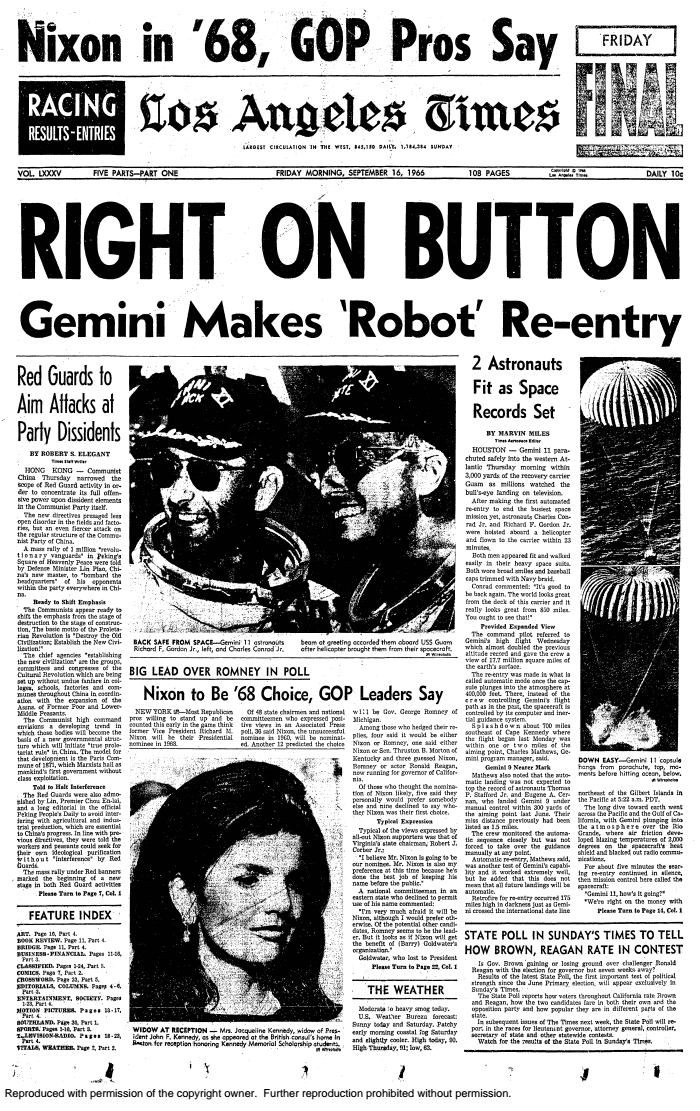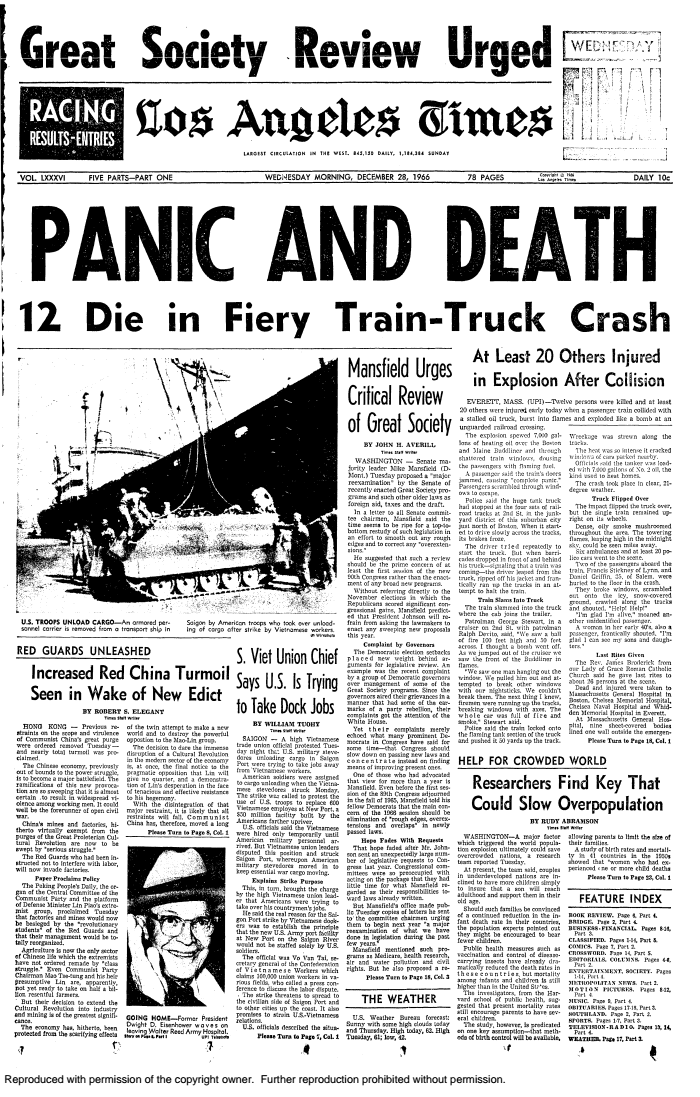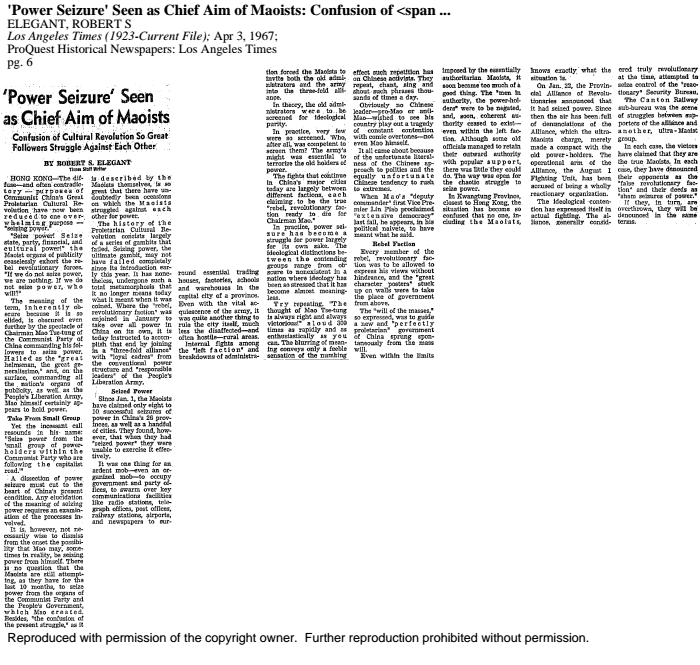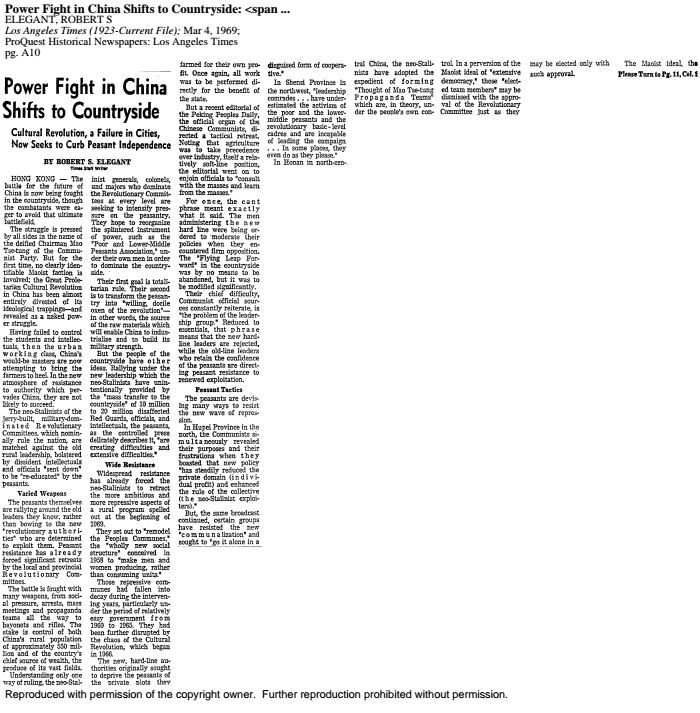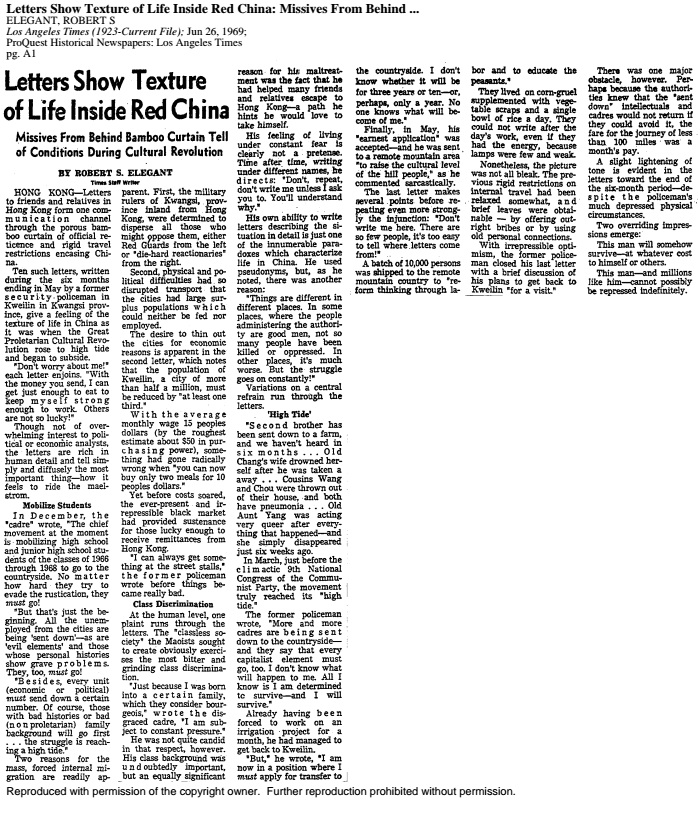From the archives: How The Times covered China’s Cultural Revolution
On May 16, 1966, Mao Tse-tung launched the Cultural Revolution, a campaign to purge Chinese society of old ways and capitalist influence, which gave rise to a decade of political upheaval.
Los Angeles Times Hong Kong bureau chief Robert S. Elegant and staff writer Donald Bremner chronicled the movement’s rise, evolution and effect on Chinese society as events unfolded. Click on the thumbnails below to read their coverage.
|
“The linked crises are so significant that their resolution — or failure of resolution — will determine the shape of China for years to come.” |
|
“A brief announcement by Radio Peking, monitored in Hong Kong, confirmed the completion of the major phase of the most abrupt and vicious purge since chairman Mao Tse-tung took control of the party in the mid-1930s.” |
|
“The Chinese Communists use the word ‘cultural’ to describe almost every human institution except the economic ones — and not in the narrower sense used by the West. Chairman Mao Tse-tung of the Communist Party has himself repeatedly asserted that ‘cultural and intellectual activities’ are more important to the maintenance of the party’s power than even economic activities.” |
|
Sketches reprinted from the People’s Daily that illustrate one phase of China’s campaign to wipe out “the old thought, the old culture, the old customs and the old habits created by the exploiting classes for thousands of years.” |
|
“A mass rally of 1 million ‘revolutionary vanguards’ in Peking’s Square of Heavenly Peace were told by Defense Minister Lin Piao, China’s new master, to ‘bombard the headquarters’ of his opponents within the party everywhere in China.” |
|
“The Red Guards, who had been instructed not to interfere with labor, will now invade factories.” |
|
“The diffuse — and often contradictory — purposes of Communist China’s Great Proletarian Cultural Revolution have now been reduced to one overwhelming purpose — seizing power.” |
|
“A nearly total breakdown of public order in the final days of 1967 has transformed Communist China’s chief cities and most populous rural districts into virtual battlefields for political and criminal elements where ordinary citizens fear not only for their property but for their lives.” |
|
“The ‘old cadres,’ who controlled the university’s administration and dominated the faculty, had already been badly shaken by the Maoist attacks on their fellows in other universities and the publishing world when a plump, middle-aged instructor in the Philosophy Department startled the campus with an indictment writ large that was the ‘first big-character poster of the Great Proletarian Cultural Revolution.’” |
|
“Thick booklets covered in red plastic swaying in their hands to the tempo, the refrain crashed out from tens of thousands of throats: ‘Mao Tse-tung is the red, red sun in our hearts!’” |
|
“The neo-Stalinists of the jerry-built, military-dominated Revolutionary Committees, which nominally rule the nation, are matched against the old rural leadership, bolstered by dissident intellectuals and officials ‘sent down’ to be ‘re-educated’ by the peasants.” |
|
“Second brother has been sent down to a farm, and we haven’t heard in six months… Old Chang’s wife drowned herself after he was taken away.” |
|
“The wheel has come almost full circle for the veteran Chinese officials who a few short years ago were being denounced and criticized by Red Guards and leftist extremists.” |
|
“The moderate forces of pragmatic Premier Chou En-lai are clearly proclaiming their dominance over the divisive, ideologically motivated ‘leftists’ who surround Chiang Ching (Mme. Mao Tse-tung).” |
